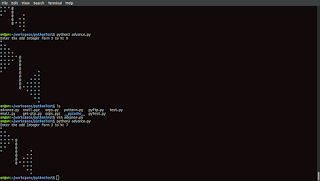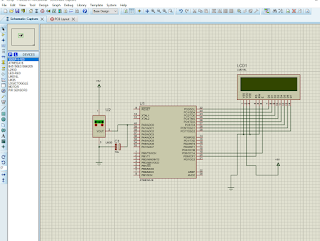Data Structure Basic Concept and Program using C language
Include the header file
#include <stdio.h>
#include <stdlib.h>
Define the Node Strucure
struct Node{
int data;
struct Node* next;
};
Function to add data on begining
void addBegning(struct Node** head, int newData){
struct Node* newNode = (struct Node*)malloc(sizeof(struct Node));
newNode->data = newData;
newNode->next = *head;
*head = newNode;
}
Function to add data at last position
void addLast(struct Node** head, int newData){
struct Node* newNode = (struct Node*)malloc(sizeof(struct Node));
struct Node* last = *head;
newNode->data = newData;
newNode->next = NULL;
if(*head == NULL){
*head = newNode;
return;
}
while(last->next != NULL){
last = last->next;
}
last->next = newNode;
return;
}
Inserting data after some node
void insertAfter(struct Node* head, int newData){
if(head == NULL) return;
struct Node* newNode = (struct Node*)malloc(sizeof(struct Node));
newNode->data = newData;
newNode->next = head->next;
head->next = newNode;
}
Deleting a element from data structure
void deleteElement(struct Node** head, int element){
struct Node* newNode = (struct Node*)malloc(sizeof(struct Node));
struct Node* temp = *head, *prev;
if(temp != NULL && temp->data == element){
*head = temp->next;
free(temp);
return;
}
while(temp != NULL && temp->data != element){
prev = temp;
temp = temp->next;
}
if(temp == NULL){ printf("Element does not exist in list"); return;}
prev->next = temp->next;
free(temp);
}
Reverse the Linked List
static void reverseList(struct Node** head){
struct Node* current = *head;
struct Node* next = NULL;
struct Node* prev = NULL;
while(current != NULL){
next = current->next;
current->next = prev;
prev = current;
current = next;
}
*head = prev;
}
Print the data
void printData(struct Node* node){
while(node != NULL){
printf("%d\t", node->data);
node = node->next;
}
printf("\n");
}
Main
int main(){
struct Node* head = NULL;
addBegning(&head, 2);
addBegning(&head, 50);
addBegning(&head, 9);
addLast(&head, 10);
addLast(&head, 25);
insertAfter(head->next->next, 30); //head-1, head->next-2, head->next->next-3
printf("Before Deletion\n");
printData(head);
deleteElement(&head, 30);
printf("After Deletion element 30\n");
printData(head);
printf("After Reverse Linked list\n");
reverseList(&head);
printData(head);
return 0;
}
One File Program
#include <stdio.h>
#include <stdlib.h>
struct Node{
int data;
struct Node* next;
};
void addBegning(struct Node** head, int newData){
struct Node* newNode = (struct Node*)malloc(sizeof(struct Node));
newNode->data = newData;
newNode->next = *head;
*head = newNode;
}
void addLast(struct Node** head, int newData){
struct Node* newNode = (struct Node*)malloc(sizeof(struct Node));
struct Node* last = *head;
newNode->data = newData;
newNode->next = NULL;
if(*head == NULL){
*head = newNode;
return;
}
while(last->next != NULL){
last = last->next;
}
last->next = newNode;
return;
}
void insertAfter(struct Node* head, int newData){
if(head == NULL) return;
struct Node* newNode = (struct Node*)malloc(sizeof(struct Node));
newNode->data = newData;
newNode->next = head->next;
head->next = newNode;
}
void deleteElement(struct Node** head, int element){
struct Node* newNode = (struct Node*)malloc(sizeof(struct Node));
struct Node* temp = *head, *prev;
if(temp != NULL && temp->data == element){
*head = temp->next;
free(temp);
return;
}
while(temp != NULL && temp->data != element){
prev = temp;
temp = temp->next;
}
if(temp == NULL){ printf("Element does not exist in list"); return;}
prev->next = temp->next;
free(temp);
}
static void reverseList(struct Node** head){
struct Node* current = *head;
struct Node* next = NULL;
struct Node* prev = NULL;
while(current != NULL){
next = current->next;
current->next = prev;
prev = current;
current = next;
}
*head = prev;
}
void printData(struct Node* node){
while(node != NULL){
printf("%d\t", node->data);
node = node->next;
}
printf("\n");
}
int main(){
struct Node* head = NULL;
addBegning(&head, 2);
addBegning(&head, 50);
addBegning(&head, 9);
addLast(&head, 10);
addLast(&head, 25);
insertAfter(head->next->next, 30); //head-1, head->next-2, head->next->next-3
printf("Before Deletion\n");
printData(head);
deleteElement(&head, 30);
printf("After Deletion element 30\n");
printData(head);
printf("After Reverse Linked list\n");
reverseList(&head);
printData(head);
return 0;
}
Give Something to the world and it will never let you down.
Onkar Dubey





